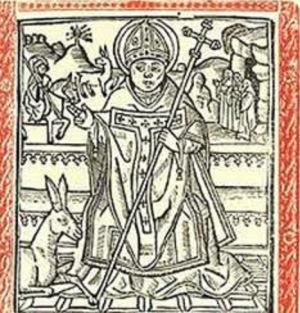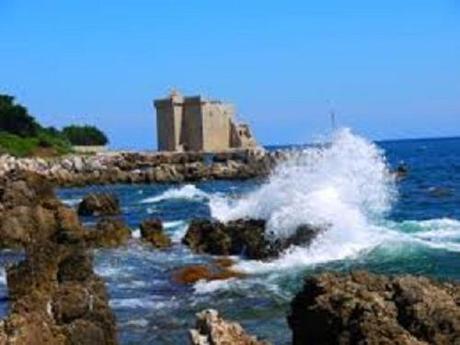The word “saint” simply means holy.
We honor saints because these men and women, though imperfect and full of foibles as all humans are, nevertheless strived to live an exemplary life by loving, honoring, and obeying God, and serving their fellow men.
It is especially because saints are imperfect that they and their lives can inspire us to be better people. Their selfless lives of service also gives us hope, especially in times of great darkness, that there is good in this world.

Today, January 16, is the feast day of St. Honoratus, who was born c. 350 and died 429 at Arles, France.
Saint Honoratus was born into a Gallo-Roman family of consular rank. He was well-versed in the liberal arts.
Note: In the medieval Western university, the seven liberal arts were grammar, rhetoric, and logic (the trivium) and geometry, arithmetic, music, and astronomy (the quadrivium). In modern colleges and universities, the liberal arts include the study of literature, languages, philosophy, history, mathematics, and science.
In his youth, St. Honoratus converted from paganism to Christianity, then won his older brother, Venantius, to Christ. The two brothers desired to forsake the world entirely; but their father put continual temptations in their way. Finally, they secured the services of Saint Caprasius, a holy hermit, who acted as their instructor in the ways of holiness.
The three sailed from Marseilles to Greece, intending to live there in some unknown desert and learn more about monasticism. Venantius died at Modon; Honoratus was also ill. He and his mentor were forced to return home via Rome. He intended to live the life of a hermit, but God had other plans for him.
Around 410, Honoratus established himself on the small desert island Lérins, where he was joined by SS. Lupus of Troyes, Eucherius of Lyons, and Hilary of Arles, as well as others. This was the beginning of the celebrated monastery of Lérins, whose history lasted for nearly 1,400 years. Some of the monks lived in community; others were anchorites. The Rule was that of Saint Pachomius.

Lérins Abbey
About 426-427, he was forced to become archbishop of the important see of Arles. However, the labors in the field he did not want lasted less than three years. Honoratus died exhausted by his austerities and apostolic labors in 429.
His relative Hilary, who succeeded him as bishop of Arles, wrote a panegyric of Saint Honoratus that speaks of the trouble taken by the saint to ensure that no one in this island community should be dispirited, overworked, or idle; and “it is astonishing how much work he got through himself, of poor health as he was.” Many visitors found their way to the island (including Saint John Cassian), and no one left it “without a perfectly carefree mind.”
Honoratus is one of those blessedly joyful saints.
H/t my friend John Molloy
For the posts we’ve published on other saints, as well as angels (who, of course, being holy, are also saints), go to our “Angels and Saints” page!
~Eowyn

